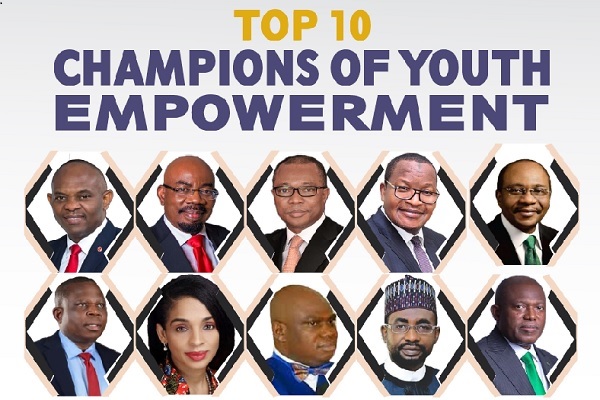Introduction
Ever since the growth functions of Nigeria’s business sector began to run out of steam in the 1980s, the need to change the job orientation of the nation’s soaring youth population has arisen.
Three major developments happened in the economy to change a golden era of companies looking for graduates to one of graduates endlessly searching for jobs. One is oil market-induced revenue crisis under which the economy faltered and the job-driving industrial sector stagnated. The economy vied off its normal course into jobless growth, excluding the mass of the youth from the labour force.
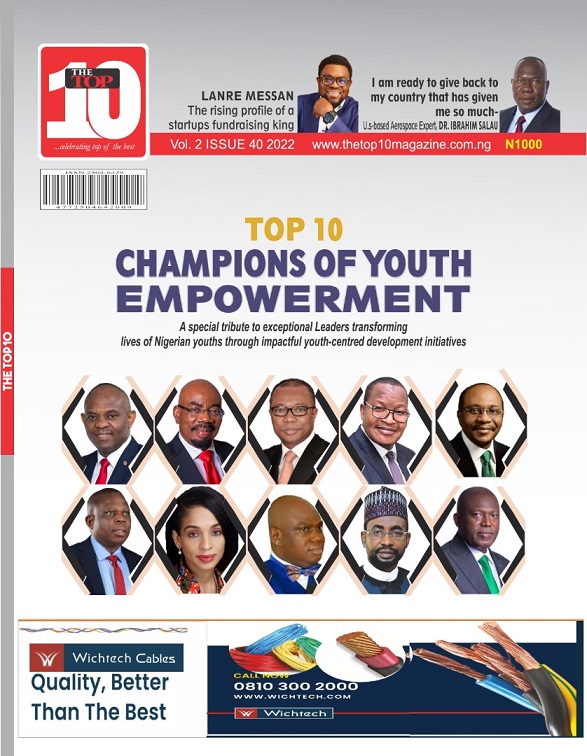
The second is massive increase in school enrollment and equally massive roll out of school leavers, which was prompted by a shift in the structure of the economy away from labour intensive productive activities into urbanised living.
Third is rapid increase in population that has made Nigeria a country with one of the highest youthful populations in the world. This is the human resource capacity, a massive wealth creating force with which the nation is endowed.
Schools fail to adjust
The tragedy of the Nigerian situation is that the school curriculum failed to adjust to these trends and keeps grooming school leavers for paid employment in an economy growing without creating jobs for the fifth decade running.
The resulting joblessness has given rise to both vices and virtues in society. Vicious activities of the youth engaging in the wrong side of life are however nothing to compare to the springing forth of a crop of young entrepreneurs who, by looking inwards, are rekindling the job-driven growth momentum the economy has since lost.
NGOs to the rescue
Ably midwifing the birth of a new era of entrepreneurship in Nigeria is a number of youth empowerment organisations with extensive intervention schemes and programmes. This edition of the Top 10 Magazine highlights the place of these agents of entrepreneurial change in Nigeria’s economic development milieu.

The work painstakingly chronicles the various tools of intervention with accomplishments of the top 10 members of the group if in its little way it might communicate the opportunities availed and help recharge the momentum of the rise of a crop of young entrepreneurs across the nation.
The quest for entrepreneurship development in Nigeria is consistent with the experiences of nations – where entrepreneurship development happened in difficult times. Entrepreneurship is found to dwell in the zone of risk taking and only the hard pressed are found there. Nigeria has arrived at the shores of economic hardship and poverty where the entrepreneurial spirit springs forth.
Hope on the youth
Hope and optimism for the nation on the new path of entrepreneurship are held by the strength and diversity of intervention programmes nursing and nurturing business ideas of the Nigerian youth into thriving enterprises. They find expressions in the emergence of transforming agents actively empowering the youth to challenge conventional wisdom, break the status quo and introduce new things – products, technology, raw material, markets – which have been the driving forces of economic development in many countries.
In 2012, the United Nations recognised entrepreneurship as a means of advancing growth and prosperity in the developing world. India has followed the path of entrepreneurship to emerge as one of the most rapidly growing economies in the world, the world’s 4th largest economy by purchasing power.
The nation of Israel has risen from near economic stagnation in the 1970s/80s to become an entrepreneurial powerhouse, leading the world in various innovation metrics, according to World Economic Forum’s 2010-2011 Global Competitiveness Report. The Economist reports that Israel now has more high-tech start-ups and a larger venture capital industry per capita than any other country in the world.
The top 10 hands on deck
An army of youth empowerment organisations in Nigeria hold great hopes for the country possibly emerging from the deep to raise a crop of young entrepreneurs across the land. Operating in their various interventions of training, seed capital provision, business mentoring, networking and more, these organisations are adding steam and speed to the nation’s economic engine, apparently unnoticed.
Among the top 10 Champions of youth empowerment are those leading the youth to develop skills in ICT for the unfolding digital economy – which has become the creator and driver of the wealth of nations. Some have built vocational training academies and some run scholarships from the kindergarten to tertiary institutions of learning, imparting technical skills that have opened up new channels of economic inclusion for the youth.
In the group also are specialists in business incubation and acceleration, offering a mix of entrepreneurship training, provision of seed capital, low-cost loan support, mentoring and consulting to impart knowledge and requisite skills to the youth for starting and managing their own businesses. Unique among them is the initiative that focuses on empowering girls and women with mechanical skills to help them become professionals in the field of automobile repairs.
The top 10 are only a scratch in the surface of the many youth empowerment organisations that have risen to the challenge of prompting the youth to raise tech giants and build an entrepreneurial nation. From their efforts perhaps a story of economic and industrial miracle could be written some day for Nigeria.
Tony Elumelu: Founder, Tony Elumelu Foundation (TEF)

Mr. Tony Elumelu is the founder, Tony Elumelu Foundation (TEF),a youth development and philanthropic platform, which has empowered thousands of entrepreneurial young Africans. The foundation’s youth empowerment programmes include an annual TEF Forum, one of the largest gatherings of entrepreneurs in Africa and TEF Connect, which is a digital hub for Africa’s entrepreneurs.
The foundation leverages its strong relationships in the public and private sectors to drive its mission of creating prosperity for all. Its overriding purpose is to enable Africa to harness fully the potential of its demographic shift to a dominant youthful population.
TEF provides a deliberate, comprehensive effort needed to create millions of new jobs or other forms of gainful employment that give the youth a large space to participate in the economy. This is in recognition that increasing youth population means a greater influx of labour workforce, which presents the most pressing short-term challenge in Nigeria and Africa.
Government has been unable to absorb the millions of young workers who enter the labour force each year. Out of this challenge, TEF came out with an intervention to turn the potential in an increasing population in human capital into a great opportunity to create new industries and expand economies of Africa.
Making this happen is the central purpose of the foundation – setting the pace for Africa’s public and private sectors to partner to turn the continent’s demographic into a rising and energetic generation that can be used to transform the continent for the better.
At the rate at which the youth enter the job market in Africa, it is projected that up to 10 million formal jobs need to be created in the continent annually. Creating the capacity to meet this challenge is the mission that TEF has set out to accomplish.
“The only way we can achieve the objective of actively engaging most of Africa’s youth as well as the ultimate goal of a more inclusive society is by unleashing the potential of Africa’s entrepreneurs to take the initiative and build the kind of companies that will rise to meet the increasing needs of Africa’s young and growing population”, Elumelu declared.
The foundation launched the TEF Entrepreneurship Programme in 2015 with a $100 Million endowment in its quest to empower 10,000 African entrepreneurs over 10 years. The success of the programme has led to its partnership with institutions such as the United Nations Development Programme, the African Development Bank, the International Committee of the Red Cross, and United Bank for Africa Plc, to create meaningful and permanent impacts across Africa.
By TEF’s latest records, it has trained, mentored and funded 15,847 young African entrepreneurs across all 54 African countries through its entrepreneurship programmes. Also, it has reached over one million Africans through its digital networking platform, TEF Connect for capacity-building support, advisory and market linkages. The programmes have impacted societies through the multiplier effects of over 400,000 direct and indirect employment created.
Entrepreneurship is the instrument of change the foundation has found quite effective in impacting millions of Africans. It is convinced that rapid and massive entrepreneurship development across Africa holds the keys to unlocking the continent’s economic potential.
The foundation also ensures that entrepreneurship development goes hand in hand with improving the conditions in which people are struggling to bring their ideas to life. “As an entrepreneur myself, I understand what it feels like to yearn for a lifeline, to hope for a big break, to look forward to enjoying some luck”, Elumelu said.
Matching entrepreneurship development with improvements in the operating environment is designed to increase the chances of success in business and also encourage even more people to take the leap to self-empowerment through entrepreneurship.
The foundation therefore seeks to enhance the capacity of African businesses by supporting and driving policies that promote competitiveness, deploying financial capital through impactful investments and educating public and private sector actors through rigorous research.
TEF creates and connects beneficiaries to competent networks of entrepreneurs and decision makers, displaying various creative capacities widely. It offers great curriculum intended to provide valuable answers to problems, overcome challenges and strengthen individual entrepreneurial journeys.
TEF Entrepreneurship Programme is open to all African youth of 18 years and above and nominations must be for a business idea or for-profit venture, focused on a single area of business and must be the original idea of the nominee.
The programme involves twelve weeks of business management training that opens access to experienced mentors and membership to Africa’s largest entrepreneurial ecosystem. The training programme was designed to segment entrepreneurs based on demonstrated abilities and knowledge.
It meets the need to educate and encourage people to start or grow their businesses and to overcome challenges faced by entrepreneurs across the African continent. The programme focuses on hands-on, interactive learning that is useful even long after the training period.
The training programme precedes moving to the stage of submitting and reviewing business plans, participating in the pitching competition and receiving the foundation’s seed capital.
Jim Ovia: Founder, Jim Ovia Foundation (JOF)

Mr. Jim Ovia is founder, Jim Ovia Foundation (JOF), which sets out on a mission of investing in the unlimited potential of the Nigeria youth as a key to the social and economic growth of the nation. It is the goal of the foundation to use education and information and communication technology (ICT) to equip young people to beneficially participate in the domestic and global economies.
The founder has a vision of a Nigeria where the knowledge gap is bridged and the youth empowered to compete in a global economy. His avenue for accomplishing this is increasing the knowledge base and skills of the youth through education and ICT.
The choice of education and ICT as the vital tools for the mission is in Ovia’s recognition that lack of quality education is intrinsically linked to poverty. He is worried by the existence of a wide gap between education and digital literacy in an age when the two have become the basic entry requirements into the corporate world.
JOF supports the use of ICT whenever and wherever possible to enhance the standard of living of society and increase human efficiency. It uses special projects, events and seminars to provide a benchmark for positive child and adolescence development. Its choice of tools for youth empowerment aims to better prepare young people for the modern day work-place, business opportunities and sharpen entrepreneurship skills.
The foundation, which took off in 2003, set out single handedly to pursue the goal of incorporating ICT into the Nigerian educational policy as a fourth science to foster an ICT literate society and ensure progressive and continuous learning.
Since then, it has become a major force in fostering social and educational uplift to underserved young Nigerians and in bringing ICT empowerment initiatives down to the reach of the Nigerian youth.
The foundation expresses its commitment to preparing the Nigerian youth for future leadership by inspiring them to create change for themselves and their communities. It believes that addressing the diverse needs of the youth is critical to the economic growth of the nation.
JOF has put together skills development vehicles designed to break the cycle of youth exclusion from the labour force and open new doors for their integration into the functional economy. Its effort is driven by the conviction of the founder that Nigeria’s economic advantage and competitiveness as a country is dependent on equipping the youth with the necessary competitive skills.
The foundation has four intervention arms created for supporting students and entrepreneurs to develop the capacity to drive the economy along with the rest of the world. These are The James Hope College, Jim Ovia Scholarship, Jim Ovia ICT Entrepreneurs Programme and Empower YOUth Programme.
James Hope College is a secondary school located in Agbor, Delta State, equipped with world-class facilities at subsidised fees.
Jim Ovia Scholarship was founded to provide financial aid to outstanding Nigerian youth. The scheme offers an average of 100 opportunities every year. The award covers tuition and maintenance allowance.
Through the scholarship scheme, the foundation is creating a network of future leaders within Nigeria, who can compete globally with their peers, inject creative ideas in commitment to improving the lives of people in their respective communities. It is expected that with time, the beneficiaries will become leaders in helping to address the challenges in the areas in which the foundation is deeply engaged – including health, technology and finance.
Over 1,500 students and entrepreneurs have been supported with more than N1 billion in educational and entrepreneurial grants through the programmes, according to the foundation. The programmes are open to secondary school leavers, university students and aspiring ICT entrepreneurs, who meet the eligibility criteria. The criteria are personal intellectual ability, leadership capability and a desire to contribute to society to improve the lives of others.
The foundation also operates Jim Ovia Foundation Leadership (JOFLS) fund in partnership with Africa America Institute. The fund offers full scholarship to 35 Africans in STEM courses yearly through Ashesi University and Covenant University for high-achieving but under-resourced students. A quarter of that number is reserved for Nigerians.
According Ovia, there is need to collectively empower young people and create a network of future leaders and game changers that can propel the African continent.
The goals of the scheme include promoting access to tertiary education, investing in the future leaders of Nigeria, providing a platform that encourages competitiveness and permits equal opportunities in the workplace and bridges the knowledge gap among the Nigerian youth.
Jim Ovia ICT Entrepreneurs Programme focuses on empowering up-coming young ICT entrepreneurs to explore the African market. The programme aims to nurture these entrepreneurs over a period of one year to set them on the path to achieving their full potentials.
A forum is hosted by the programme where between five and ten innovative ideas and 50 entrepreneurs are selected for funding every year. The entrepreneurs are given the necessary training and mentorship to achieve their goals.
The Empower YOUth Programme is an initiative that aims to familiarise children aged between six and 10 with the digital age through ICT. It is a twelve-week boot-camp programme that equips participants with ICT skills they need to gain access to the tech economy in the years ahead.
The ‘catch them young’ programme is a response to a research-findings that early intervention in education translates into very high graduation rates, well equipped labour market entrants, social welfare and reduced crime rate.
Tim Akano: Founder/CEO, New Horizons Nigeria
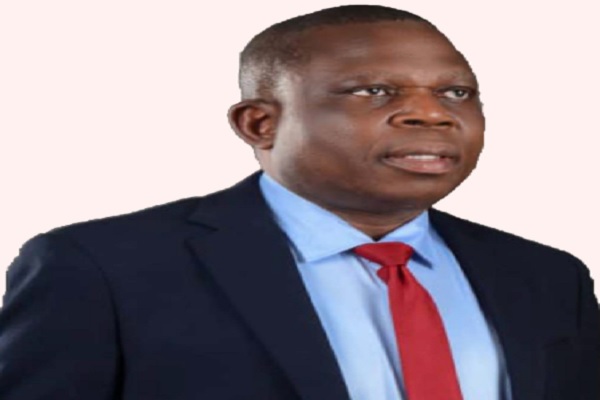
Mr. Tim Akano, an investor, entrepreneur, writer, author, mentor and life coach, is the founder and managing director of New Horizons Nigeria Limited. He is the man who saw the need to bridge the IT knowledge divide between Nigeria and developed nations by forming a strategic alliance with the US-based New Horizons International – the world’s number one ICT training organisation in the world in order to provide world class IT training to the people of Nigeria.
Akano trained in international relations at the University of Ile-Ife and proceeded to WITS University Johannesburg, South Africa for advanced management programme. He also attended Institute of Management (IMD) Laussane, Switzerland – Senior Management Programme and Lagos Business School – Senior Management Programme.
After working for 17 years in three multinationals by 2005, he discovered Nigeria’s backwardness on ICT while on a training programme at IMD, the business school in Geneva. He decided to venture into IT with a burning desire to take Nigeria to the level of the rest of the world in the use of ICT infrastructures.
He understood the role of IT as the greatest creator and driver of the wealth of nations and took the steps to ensure that Nigeria connects to develop skills in this area. He therefore set out with a vision to create the foremost IT training platform in Nigeria.
Bridging the digital gap requires first building internal capacity for trainers and Akano realised this from the start. “We realised at our start that for us to truly bridge this gap, we must prioritise empowering the next generation of solution providers”, he said.
In May 2004, New Horizons Nigeria was granted the licence as a franchisee of New Horizons world-wide to operate in Nigeria. Since then, Akano has covered great milestones in IT training of Nigerian youth and is reputed to have built the largest IT training institution in the country. His purpose is to contribute immensely to the socio-economic development of the nation.
In pursuit of his mandate, the CEO of New Horizons Nigeria has dedicated his life, resources and energy to youth development and empowerment in Nigeria and Africa. The company opened its first office in Nigeria in April, 2005 in Lagos with a staff strength of five and less than ten students.
In a space of eleven years, the company emerged as the largest ICT training institution in Nigeria with over 300 ICT professionals on its payroll and rolling out over 50,000 candidates yearly in 15 partnering universities and 100 high schools.
Akano is fulfilled in seeing a great desire in ICT development come through where he adds value in the critical area of youth empowerment. His company pioneered the integration of ICT-certification based training into both the high school and university educational curricula in Nigeria. It sets up IT laboratories, making IT as a part of the academic programme as the science laboratories.
This was a singular action that has bridged the gap between the high demand for good quality ICT professionals in the business world and the non-ICT literate school leavers being rolled out. With the New Horizons Nigeria’s ICT-certification based training, universities began to produce graduates who combine their academic qualifications with at least four international ICT certifications before graduation.
This initiative has gone a long way to deal with the challenges most companies were facing in securing good quality ICT professionals and stemming high turnout of ICT workers in the financial sector and elsewhere.
Akano founded FABAAW, a mentoring platform for young people from over 50 African countries and around the world. The platform offers career coaching, investment guide, leadership training, governance and policy making, skills acquisition programmes and more.
Other youth empowerment initiatives of his organisation include an annual national job fair – which is designed as a veritable avenue for employers of labour and qualified job seekers to get to a meeting point. The fair is also an empowerment forum for job seeks in capacity building to usher the young intellectuals into the realm of creativity and innovation in ICT.
Another of Akano’s major feat in the ICT development is the New Horizons/NYSC Job Fair, where finishing NYSC members are availed the opportunity of having job interviews by potential employers and to secure job placements at the end of the national service.
Also, New Horizons Nigeria pioneered the Under 17 ICT Competition with a view to bringing out the very best of Nigerian teenagers and putting them through quality training early enough to help them become wealth creators in future using the instrumentality of ICT.
New Horizons Nigeria boasts over 22 years of cognitive experience in ICT training and examination testing in Nigeria. It is on a mission to provide high quality, cost-effective training designed to increase individual and organisational productivity and enrichment.
According to Akano, “the organisation is dedicated to youth transformation through IT since our doors first opened. I am beyond honoured that these groups have bestowed on New Horizons, the title of Icons and enablers of National Youth Empowerment. We remain undeterred in our goal to transform Nigeria and solidify our place as global tech giants.”
The company undertakes individual training and development that impart new IT and business skills or improve an individual’s skills set. It also runs corporate training programmes that meet organisations’ training needs from a single source. This provides guidance to career path and helps employees improve their job related expertise.
The company’s innovative ‘customized enterprise solutions’ equips corporate training managers to easily administer their learning programmes and track the progress of all participating employees.
The company also offers online training services with flexible training schedule that accommodates self-paced and virtual live trainings. This is available for individuals, corporate organisations and groups.
It has added dynamic features to ICT training with its retail online services that equip trainees with international ICT and e-Business certification skills. This is designed to fast-track trending opportunities, which makes the programme highly effective in combating the rising global joblessness. The service also includes partnering educational institutions in order to support/upgrade their existing IT levels through recommending, designing and implementing/deploying applicable IT Solutions in form of Tech-Projects.
Chibuzor Chinyere: General Overseer, Omega Power Ministries & Founder OPM Foundation

Apostle Chibuzor Chinyere, general overseer, Omega Power Ministries, runs OPM Foundation – a humanitarian outfit that rehabilitates, empowers and trains people in computer and other skills. His free computer training centre at Elele Prisons has been in operation since 2010 from where many prisoners and prison warders have graduated.
The foundation has trained thousands of Nigerian youth in basic computer programming, Microsoft excel, power point and other computer packages through its free computer training scheme in Nigeria. This has opened career opportunities to the beneficiaries in the public and private sectors of the economy.
The foundation awards university scholarships to selected beneficiaries from across the Nigerian federation. It commenced free tailoring and Computer Training Centre at Rumuji town in Rivers State in 2012, which is open to indigenes and non-indigenes.
The empowerment programme of the foundation has been extended to children through free education even to the kindergarten level. It runs free nursery and primary school programmes, which create opportunities for less privileged children to get basic education. The package includes the provision of four sets of uniform, sandals, launch, computer training, text and exercise books in fully air conditioned class rooms with equipped laboratories.
In September 2013, the foundation’s free ICT-based nursery/primary school came on stream in Rivers state, the first of its kind in Nigeria. It is restricted to children from poor parental background. In 2015, the foundation sponsored less privileged children to Paris on educational excursion.
OPM Foundation has also built a Multi Skill Acquisition Centre in Port Harcourt where training of the youth cuts across specialised industries and trades such as oil and gas, rig welding, carpentry, tailoring, free driving school and more. Latest records show that more than over 6,000 Nigerians have completed training at the centre.
Chinyere connects to slum dwellers to lift them out of poverty because he was once one of them. “I want to touch the lives of the less privileged. I was living under the bridge, an ordinary re-charge card seller. I have real feelings for the less privileged and that is why I want to empower them,” he said.
Chinyere tasted hardship in life in Lagos where he slept under the bridge, worked as a cleaner, a security guard and sold GSM recharge cards to survive.
Moved by the high level of poverty among shanty residents of Bundu Waterside in Rivers State, he organised a diploma training programme in ICT for the youth there. Speaking on the choice of the location for the empowerment, he said, “I feel for them, having remembered how I was some years ago, and wish to give them the best of computer education. We are doing what we do for those who cannot pay back”.
He takes steps to ensure sustainability of such training programmes by creating employment opportunities after training. He creates a network of business owners through which the beneficiaries of training programmes are placed on jobs.
The various empowerment programmes of the foundation are open to members and non-members of the Omega Power Ministries. Through the foundation, the apostle reaches out to the Nigerian youth for empowerment. This includes scholarships offered to recipients from across the 36 states of the federation for studies to university levels.
He wants the youth to take steps to avail themselves of self-development programmes of his foundation and become gainfully employed.
He isn’t deterred by the huge cost involved in the projects but assures that he will not be deterred. “The challenges are so much because the project runs into millions of naira but we won’t stop”, he said.
The free school programme of the foundation is its response to high school fees being charged by the educational institutions owned by religious organisations in the country. To Chinyere, the non-affordable fees charged by these institutions means the church, as a body, is contributing far below expectations to national development.
“A lot of churches have not done enough. If you look around, you will find some churches that build schools and their fees are unbelievably too high for the poor”, he said.
He has free hospital programme that has brought to life over two thousand children. This takes his human development programme full circle from birth through free school scheme to various skills acquisition training to the working career.
Chinyere is celebrated as the face of empowerment and liberation for the youth from the shackles of hopelessness. He is seen as God’s instrument for helping the youth who are largely excluded from the Nigerian economy. He holds himself out to all to help, irrespective of tribe, language and religion.
Fola Adeola: Founder, Fate Foundation
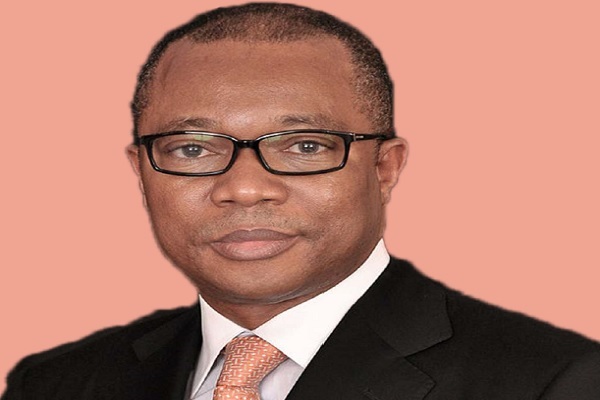
Mr. Fola Adeola, founder and pioneer managing director/CEO, Guaranty Trust Bank, is also the founder of Fate Foundation. He stands out as Nigeria’s foremost business incubator and accelerator. He established Fate Foundation in 2000, a non-governmental organisation that sets out to encourage entrepreneurship, using a mix of training, mentoring, loan support and consulting to support young Nigerians.
The foundation is on a mission to foster wealth creation by promoting business and entrepreneurial development among Nigerians. Positioned as a catalyst for entrepreneurship, it harnesses the strong entrepreneurial culture of Nigerians by providing the business incubation, growth and accelerator support required by aspiring entrepreneurs to explore fully their innovative potentials.
The foundation runs on a sustainability model that is driven by funding and technical support from local and international partners and is enabled by a strong volunteerism strategy. It is Adeola’s innovative vehicle designed to enable emerging Nigerian entrepreneurs to start, grow and scale their businesses, thereby stimulating job creation, economic development and social impact.
At it take off in 2000 FATE Foundation launched Nigeria’s largest and longest-running pre-incubator programme the Aspiring Entrepreneurs Programme for young entrepreneurs and startups. This was quickly followed by Emerging Entrepreneurs Programme for growing businesses in 2001. In the same year, the foundation’s consulting unit – FATE Consulting came on stream to provide business support and advisory services for entrepreneurs.
In 2002, the Port Harcourt branch of the foundation was opened to focus on enterprise creation in the Niger Delta. A milestone of 1,000 new businesses was attained in 2006 and an impact assessment Study of FATE Alumni in 2010 showed a high success rate of 65 percent stable in business with an average of four jobs created.
The foundation commenced entrepreneurship ecosystem Research and Policy Advocacy in 2015 and held its inaugural Annual Policy Dialogue Series on Entrepreneurship. Another major milestone was reached in 2016 when the number of businesses and youth supported hit 5,000 and 100,000 respectively.
In 2017, the foundation joined Youth Business International and published the first Entrepreneurship Ecosystem Mapping Study. In the same year, it received its first grant from the African Capital Alliance Foundation to launch the ScaleUp Lab Accelerator Programme for high growth potential agribusinesses.
Major impacts were made by the foundation in 2018 when it launched Sky’s the Limit virtual mentoring and advisory platform, received technical support from ACCA Nigeria for financial literacy and support by Facebook and Citi Foundation to expand the AEP to non-Lagos cities.
Also in the same year, FATE Foundation partnered Global Alliance for Improved Nutrition as well as Scaling Up Nutrition Business Network. The target was to accelerate high growth potential businesses in the nutrition and food safety space with its Nutrition Accelerator Programmes designed for this group of businesses.
The foundation implemented the Orange Corners Lagos in 2019 with the support of the Embassy of the Kingdom of the Netherlands in Nigeria and the Orange Corners Project. It marked its 20th anniversary in 2020, launched its 20-year impact report and published the Nigerian Entrepreneurs Handbook Series of 7 books. It also set up $1 million FATE Philanthropy Coalition for COVID-19 Support Fund and launched the Journeys in Entrepreneurship Podcast and Video Series in the same year.
In 2021, the foundation attained new milestones in its intervention withits celebration of its 100th AEP class, Reaching 190,000 individuals in 27 states. It also launched the online Entrepreneurship certificate course and three FATE divisions: FATE School, FATE Institute and FATE Giving. Other accomplishments in the year include the launching of Inaugural Annual State of Entrepreneurship in Nigeria Report and the launching of Eur1.4 million Orange Corners Innovation Fund.
FATE School demonstrates the foundation’s passion to contribute to the United Nations Sustainable Development Goal of quality education. The school provides the knowledge, tools, resources, platforms and linkages for aspiring and emerging Nigerian entrepreneurs to start, grow and scale sustainable businesses.
The school was created to help the youth overcome the challenges of unemployment and underemployment, difficult business environment among others and offer solutions through enterprise training and resources, targeted growth and sector support as well as enabling the ecosystem.
The FATE Institute is the research and policy arm of the foundation, which was created as a response to the challenge of lack of data around entrepreneurship in Nigeria. The institute adopted a new approach to research to drive strategic decision-making by policymakers and other stakeholders.
Its approach is to provide definitive answers to important questions that entrepreneurs ask and bridge the information gap by providing insights and data around the entrepreneurship ecosystem. It also enables effective policy recommendation meant to aid the policy information and design system and provides insights into the operations of The FATE School of Entrepreneurship.
The institute has made remarkable contributions to the growth of the foundation through increased practical learning and understanding of Nigeria’s entrepreneurship landscape. It has positioned the foundation to provide effective answers to all the questions that entrepreneurs frequently ask.
The Institute’s objective is to lead innovative thinking and create platforms to enable idea exchange and problem-solving strategies to foster sustainable entrepreneurship in Nigeria. The foundation therefore shares its research findings with operators and stakeholders in the entrepreneurship ecosystems. Over the years, the foundation has published reports, policy white papers, briefs, opinion pieces and insights in its goal of communicating innovative solutions discovered around pressing entrepreneurship issues.
Umar Garba Danbatta: Executive Vice Chairman, Nigeria Communications Commission

Prof. Umar Garba Danbatta, executive vice chairman, Nigerian Communication Commission, has played an extensive role in the empowerment of Nigerian youth through a number of Information Communication Technology-based (ICT) initiatives he has put forward at the commission.
He explained that the resolve of the Commission to pursue vigorously a bouquet of ICT programmes focused on the youth is based on the projected opportunity for the youth in the emerging ICT-based labour market.
Looking ahead, Danbatta reckons that 70 per cent of the new value to be created in the economy over the coming decades will be based on digitally-enabled platform business models. Planning ahead therefore, he assures the nation of implementing diligently all sectoral interventions focused on ICT-based youth empowerment.
Current trends and projections indicate that economies around the world will continue unstoppably towards digitalisation with corresponding growth in operators’ revenue and investment. By the growth indices from NCC, the fourth generation (4G) connections are expected to reach 57 per cent, the fifth generation (5G) is envisaged to have 1.8 billion connections and usage of smartphones is projected to hit 81 per cent.
Internet of Things (IoT) is expected to advance from 13.1 billion to 24 billion connections and the mobile industry’s contribution to Gross Domestic Product is expected to grow by at least 5.1 per cent by 2025.
Considering the foregoing, Danbatta sees huge, incredible opportunities for the youth to build flourishing businesses. “Therefore, while NCC is working collaboratively and strategically with its supervising ministry, Federal Ministry of Communications and Digital Economy, it is also working with young Nigerians to prepare them for harnessing these opportunities for personal and national prosperity”, he assured.
NCC has therefore developed robust youth empowerment initiatives through the ICT eco-system with the aim of creating a digitally skilled workforce that would fit into the evolving Digital Economy Project of Nigeria. He assures that NCC is committed to fostering partnership and collaboration with technology hubs and start-ups in order to accelerate innovation and creation of a digitally skilled workforce for the nation’s industrial growth and sustainable development.
In positioning Nigeria to tap deeply into the huge prospects, NCC has instituted a number of initiatives and interventions for youth empowerment in what Danbatta has described as “a unique and unprecedented institutionalisation of strategic collaboration and partnerships”.
The initiatives include the ICT Hubs Support and Engagement, which is a forum that brings together key stakeholders and the youth in Nigerian tech-ecosystem to deliberate and suggest policy framework and strategies that could further develop the sector to catalyse improved local content in the ICT/telecommunications sector.
In place also is an annual ICT Innovation Competition and Exhibition that aims at facilitating sustainable digital start-ups development through a platform to showcase their digital innovative solutions.
Another initiative of NCC is an annual forum that is designed to challenge start-ups and tech hubs in Nigeria to produce impactful and sustainable innovative solutions that will address common societal challenges using digital technologies.
There is also the ICT Park Project being built across the six geo-political zones of the country to boost digital skills among young people, promote innovation, provide jobs for young Nigerians and ultimately support the federal government’s digital agenda. The focus of the project is to harness and optimise the youth’s creative energy for development.
Part of the initiatives includes the NCC National Essay Competition, which engages undergraduates in Nigerian tertiary institutions to explore and enhance research capacity at that level. In addition to that are two school support programmes – Digital Awareness Programme and Advanced Digital Appreciation Programme for Tertiary Institutions.
The first is a special intervention initiated as a Corporate Social Responsibility project to address digital information knowledge gap in the country. The second is instituted to bridge the knowledge skill gap in institutions higher of learning, largely targeted at the youth and students.
Having done an extensive work in charting the course of ICT-based opportunities that are emerging in the economy, Danbatta has further identified the emergent segments for the youth to consciously begin to take exploratory actions. The technology segments, according to him, include Blockchain, Artificial Intelligence, Cloud computing, Internet of Things and Big Data.
He also draws due attention of the youth and students to overlapping variables of the technology segments that are leading the way of the world into the future. These include hyper-connectivity, super-computing, cyber security and smarter world such as robotics, 3D printing and sensors.
Kashifu Abdullahi: Director General/CEO, NITDA
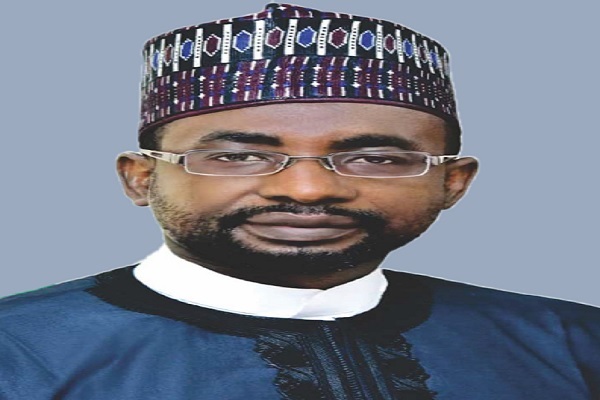
Mallam Kashifu Inuwa Abdullahi, director general/CEO, National Information Technology Development Agency (NITDA) runs a series of programmes that support youth empowerment towards Nigeria’s attainment of a digital economy. This is in line with the mission of the agency to create an enabling environment where Nigerians develop, adopt and derive value from digital technology.
In four years of his leadership of NITDA, he has initiated and successfully executed several programmes that empowered close to 30,000 Nigerian youth. The programmes cut across various segments of the youth, touching lives all the way. These include programmes for business start-ups such as Start-Up Friday, Start-Up Clinic, FutureHack.
Other empowerment programmes include Tech4COVID-19 Challenge, capacity building for artisans, girls, women and people living with disabilities.
He has also introduced Technology Innovation and Entrepreneurship Support Scheme that aims to provide opportunities for building capacity for hub owners and start-ups. The objective of the programme is to roll out technology-based entrepreneurs and jobs within the industry.
The agency under Abdullahi has launched NITDA Academy for research and training in support of growth and development functions of a technology-driven economy. This is supported by Virtual Training Programme under which 23,000 participants benefitted in a short space of time.
NITDA’s capacity building programmes include trainings in ICT and digital capacity development for artisans – meant to promote digital economy among the youth. In place also are other skill empowering schemes designed to drive inclusion in the digital economy.
The DG’s focus is on implementing the National Digital Economy Policy and Strategy towards a digital Nigeria. The youth are at the centre of his transformational agenda, rekindling their hopes in the future of the nation’s technology driven economy.
NITDA runs digital economy centres it has created to develop digital skills in educational institutions and rural and underserved areas of the country, thereby enhancing digital jobs. The centre connects schools, libraries and institutions to broadband internet, which has helped to facilitate digital lifestyle in these areas.
Other benefits of the centres include easy access to information in the communities and ability to connect to external communities. Enabling environments are created for nurturing innovation and entrepreneurship and development of training and professional programmes that promote self-employment and entrepreneurship is also made possible.
The agency offers a scholarship scheme with the objective of promoting proficiency in Information Technology at Doctorate and Masters Levels. The scholarships are targeted at two persons per state and the FCT for Masters’ courses and one person per geo-political zone for Doctorate programmes. Through the scheme, the agency is making a remarkable contribution in human capacity building in core areas of Information Technology across Nigeria.
Products of the scheme are rated globally competitive in the area of ICT, which paves the way for job creation in the IT related field and for Nigerian youth to achieve their dreams in this area. This is in support of government’s effort to shift the economy from natural resource-based to knowledge-based.
IT-enabled capacity development is another aspect of NITDA’s youth empowerment activities, which is designed to equip the upcoming generation with adequate knowledge of Information Technology to take advantage of advances in the production of IT goods and services for the advancement of society. This ensures that the youth are provided with IT-enabled capacity that has become the key enabler of economic development.
NITDA also operates fully equipped Information Technology Hubs aimed at addressing the problem of lack of sufficient skilled manpower to drive local content development and industrialisation in the country. It has built IT Hubs in strategic locations across the country to support industry players towards the development of IT for industrialisation. The centres run capacity development programmes for both skilled manpower development and improvement of business and investment climate through improving infrastructures and support services.
The agency provides Virtual Libraries as information resource tools in schools, universities and communities in the country to enable quick, remote and easy access to useful, relevant information. The objective is to provide students, lecturers and researchers with easy access to a wide variety of information resources, provide opportunities for learning that are not possible with physical libraries by providing remote, anytime, anywhere, always-available access to useful and relevant information, improve real time collaborative learning and information exchange, especially for students and research teams.
Other empowerment programmes of the agency include e-Learning Platform, which comes in a number of editions designed to assist with the creation of learning communities by offering various opportunities for collaboration and interaction through an icon-based user interface. The platform offers tools for content creation, test building, assignments management, reporting, internal messaging, forum, chat, surveys, calendar and others.
There is also a Wide Area Network Project, the main objective of which is to provide IT infrastructures to Nigerian tertiary institutions to access broadband internet and other IT services such as IP telephony and IP surveillance systems. The project is aimed at facilitating a digital lifestyle in tertiary institutions.
Abdullahi studied computer science at Abubakar Tafawa Balewa University Bauchi from where he graduated in 2003. He joined Galaxy Backbone Limited, where he worked for nine years, from 2004 – 2013, holding several positions such as Network Engineer, IP Network Field Engineer, Senior Network & Lead, IP Operations Team, and Senior Solution Architect & Lead, Technical Solution Design.
He attended leadership and management courses at various times at Harvard University, Massachusetts, United States; University of Cambridge, United Kingdom and IMD Business School, Switzerland.
He went further to earn several other professional certifications in Project Management, Networking, Telecommunications, Service Management and Solution Design. He is reputed as the first Cisco Certified Internetwork Expert in Nigeria’s public Sector.
Olukayode Pitan: Managing Director/CEO, Bank of Industry

Mr. Olukayode Pitan is managing director/CEO, Bank of Industry, which has developed one of the most extensive and coordinated youth empowerment programmes in Nigeria. The bank’s Youth Entrepreneurship Support programme (YES) aims at reducing youth unemployment through capacity building and funding business ideas. The programme builds up young people in knowledge and requisite skills for starting and managing their own businesses.
Eligible for the programme are aspiring entrepreneurs of the age range of 18 to 35 years, who have innovative ideas and who have obtained a minimum educational qualification of an Ordinary National Diploma. They should have been trained under the BOI Entrepreneurship Capacity Building Programme. National Youth Service Corps members, who have gone through the NYSC’s Skills Acquisition and Entrepreneurship Development Programme, are also eligible under the scheme.
The YES scheme was designed to offer a more ambitious youth empowerment programme than most of the capacity building schemes aimed at addressing youth unemployment. Most of the programmes concentrate on training without a tie-in to business loans for start-up capital.
The YES scheme recognises the provision of business loans as a critical success factor to youth empowerment programmes. It covers the entire training value chain in terms of developing entrepreneurship, business management and technical skills.
N10 billion fund set aside for the programme is targeted to support the establishment and/or expansion of an estimated 5,000 enterprises promoted by Nigerian youth across the country. The fund is provided as loans to beneficiaries up to a maximum of N5 million per participant at a single digit interest rate of 9 percent per annum for a tenor of 3 to 5 years. The target impact of the scheme is creation of a minimum of 20,000 direct jobs and 30,000 indirect jobs annually.
The broad objectives of the YES programme include the creation of an interactive learning platform to train young aspiring entrepreneurs in entrepreneurship, business management and technical skills for enhanced productivity. The scheme is also expected to kindle the entrepreneurial spirit of the youth and act as an incubation centre where business ideas are nurtured to their full potentials.
Global best practices are expected to be entrenched by inculcating a culture of innovation-driven entrepreneurship and ethics in the programme participants. Other key objectives include changing the job-seeking mindset of school leavers towards self-employment. The scheme is also designed to deepen financial inclusion by de-risking the young aspiring entrepreneurs and making them eligible for small business loans being provided by BOI.
The YES programme comprises eight weeks of extensive online entrepreneurship and business management training and five days of in-class training covering the business idea, business model, sales and marketing and running a successful business. It also incorporates financial plan, technical skills training in partnership with the various technical training and vocational institutes in the country. Two thousand applicants selected nationwide access the training programme annually.
BOI also operates Graduate Entrepreneurship Fund (GEF), which affords serving NYSC members with entrepreneurial skills an opportunity to venture into self-employed businesses. The fund is a N2 billion empowerment programme launched in 2015 as a joint initiative between BOI and NYSC.
It is intended to encourage graduates of tertiary institutions undergoing the compulsory one-year national service to venture into own businesses and become employment creators rather than job seekers. It is also designed to fill the entrepreneurship capacity gap, as participants are guided to produce bankable business plans after a capacity building programme.
The scheme is also expected to deepen financial inclusion by de-risking the NYSC members and making them eligible for concessional loans ranging from N500,000 to N2 million to be provided by BOI. The monitoring role by the NYSC Directorate and BOI under the scheme is to ensure sustainability of the businesses of the loan beneficiaries.
The bank has used the GEF scheme to gather from year to year the most promising real sector business ideas and support bankable business plans across its 35 SME clusters at an interest rate of 9 percent per annum.
The bank’s strategy is to avail the youth an operating environment for innovative actions for them to make meaningful contributions to the economy and society. It recognises the youth as a critical force in developing solutions to challenges facing communities and the nation.
Godwin Emefiele: Governor of the Central Bank of Nigeria (CBN)

Mr. Godwin Emefiele, governor of the Central Bank of Nigeria (CBN), is widely acclaimed for having made Youth Entrepreneurship Development one of the key functions of his robust development banking programmes. Right from his inaugural speech, the governor clearly defined a policy focus that centre on economic development aimed at reinforcing productive activities and creating employment opportunities.
The path of propping up the productive sectors necessarily crosses the territory of the Nigerian youth that constitute the dominant productive workforce of the nation but who are largely excluded from the active labour force due to rising unemployment. “At the CBN, we are concerned about the level of unemployment within the youth population and we are taking steps to address it’’, Emefiele said.
How to run an inclusive economy that places the youth in the forefront of entrepreneurship- based economy has been a major preoccupation of Emefiele, particularly as the Nigerian economy faced recession in 2015. His strategy is the use of coordinated interventions to build new capacities in key production sectors of the economy, optimising the financial catalyst role of the bank.
Youth empowerment programme has been given its proper place in this strategy. Emefiele’s regime at the CBN has witnesses an effective engagement of CBN’s development banking capacity, giving birth to an elaborate development financing programme that is now in force.
The CBN launched its Youth Entrepreneurship Development Programme (YEDP) in March 2016 to propel the harnessing of the ingenuity and resourcefulness of the Nigerian youth for accelerated economic development. This is in clear understanding of the critical role of Nigeria’s youthful population in entrepreneurship – which has become the growth driving force in a modern-day economy.
The programme was fashioned as a tool to tap the latent entrepreneurial spirit of the teeming youth by providing timely and affordable finance to implement their business ideas. It is positioned as a sustainable mechanism to stimulate employment, contribute to non-oil gross domestic product and address the challenge of youth restiveness.
YEDP is structured as an effective instrument to fix a tripod of funding constraints discovered to stand in the way of youth entrepreneurs and startups. These are insufficiency of start-up capital, high cost of funds and unfavourable terms of available credit.
Under the programme, business loan is provided to the tune of N3 million to eligible youth while a group of 3 to 5 youth can get a loan of up to N10 million. The credit is provided on soft terms with interest rate of 9 percent per annum and a tenor of one year for working capital and three years for term loan. Collateral requirements are tuned down to the level of the youth – academic and National Youth Service Corps (NYSC) certificates, third party guarantees and other movable assets.
Target beneficiaries under the programme are serving members of the NYSC and non-current NYSC but not more than five years post-NYSC. Eligible also are the youth who possess verifiable tertiary institution certificates, artisans with First School Leaving Certificate or a technical certificate or accredited proficiency certificate from the National Board for Technical Education, whichever is applicable.
The programme is funded from Micro Small and Medium Enterprises Development Fund
(MSMEDF). Beneficiaries are given opportunities to migrate to other CBN interventions to access increased funding if they utilize the YEDP facility satisfactorily.
Activities eligible for financing under the programme include startups and expansion projects in agricultural value chain (fish farming, poultry, snail farming, etc.), cottage industry, creative industry (tourism, arts and crafts) and information and communications technology (ICT), among others.
Another intervention scheme of the CBN is its Tertiary Institutions Entrepreneurship Scheme (TIES), which offers bigger funding than YEDP. The scheme, which offers a start-up loan of N5 million per participant, is targeted directly at entrepreneurship development with the objective of boosting the businesses embarked upon by the youth, create employment and contribute to economic growth.
According to Emefiele, the scheme was designed to create a paradigm shift among students and graduates of tertiary institutions in Nigeria from white-collar jobs towards
entrepreneurship development. The apex bank developed the programme in collaboration with universities and polytechnics in Nigeria to make participants ready for the scheme ahead of time.
The CBN governor is pressing on with his goal to make Nigerian graduates job creators rather than job seekers after graduation. This, he said, has since become the way for graduates in other parts of the world. “What we are doing today is something that is taken for granted in other climes”, he said.
He described the scheme as an innovative financing model that correlates with the complexity and dynamics of small businesses with the aim of bridging their financing gaps and enhancing access to low-cost credit to drive development.
TIES consists of three components, which include the term loan that provides direct credit opportunities to graduates of Nigerian polytechnics and universities of not more than seven years post-graduation. Equity investment component is designed to support start-ups, existing businesses requiring expansion and ailing businesses seeking resuscitation. Development grant component aims at raising awareness and visibility of entrepreneurship among undergraduates of Nigeria’s tertiary institutions.
NPower programme is another of the CBN’s youth empowerment scheme that took off in 2016. It was established to help tackle youth unemployment, alleviate poverty in the country and increase social development. The scheme was structured as a component of National Social Investment Programme to provide a platform for large scale and relevant work skills acquisition and development and to enable participants learn and practice what is necessary for them to find or create work.
The scheme focuses on unemployed graduates and non-graduates between the ages of 18 and 35 years. It is a paid programme for a two-year duration under which beneficiaries are engaged in their states of residence.
The CBN has equally made a remarkable intervention in youth empowerment through its
Micro, Small and Medium Enterprises Development Fund (MSMEDF). The fund is provided to spur growth of small and medium-sized businesses and enable them make major contributions towards achieving a balanced economic structure and even development across sectors and sub-sectors of the economy.
Ndidi Okonkwo Nwuneli: Founder, Leap Africa Foundation

Mrs. Ndidi Okonkwo Nwuneli, a social entrepreneur with more than two decades of experience in international development and business management, founded Leadership, Effectiveness, Accountability & Professionalism (LEAP) Africa Foundation in 2002. The youth-focused leadership development organisation is on a mission to bridge the gap in leadership, education, employability and entrepreneurship in Africa through youth development interventions.
Nwuneli was driven by two convictions in setting up the foundation: a desperate need for a new generation of visionary, ethical, creative and disciplined servant leaders in Africa and to create a platform that can enable a small group of people, who share the same vision, to work together to change their communities, countries and indeed the world.
The foundation recognizes youth leadership and inclusion as critical to wealth creation and nation building. Its value-driven interventions are designed to inspire, empower and equip young people to lead ethically for personal, organisational and community transformation.
It structures its interventions to motivate the youth to creatively address social issues and
deliver positive changes in their communities as a model to transform the African continent. Its programmes are also designed for supporting social entrepreneurs to build systems and structures that are crucial for business sustainability, thereby contributing to livelihoods, social and national development.
The foundation’s two broad objectives are to make secondary education work for young people and then raise talents for the actualization of sustainable development goals.
LEAP Africa is actively involved in developing the body of knowledge, leveraging its strategic direction of ecosystem building, thought leadership and advocacy. It undertakes extensive research from which it continuously rolls out leadership development books, articles, research papers and reports, which are actively used by entrepreneurs, managers and institutions across the globe.
LEAP Africa’s mission of raising leaders and empowering the youth agency across Africa has attained great milestones. The organisation has a track record of having established footprints in some 26 states in Nigeria and eight countries in Africa.
At the latest count, it reports over one million direct and indirect beneficiaries from its change programmes in Nigeria, 11 published leadership development books for guiding the creation of positive and lasting changes in individuals, organisations and communities.
According to Nwuneli, the foundation has pioneered leadership, civics, ethics, governance and succession training programmes for youth among others. “Through leadership and life skills programmes, we have trained youth, teachers and practitioners across Africa. Many of our alumni are celebrated leaders across Nigeria, and we are extremely excited about the roles that are playing in shaping Africa’s future”.
LEAP Africa counts its success on the ability of beneficiaries to make practical changes in their lives, their organisations and communities. Nwuneli is delighted that many beneficiaries supported have become entrepreneurs across Nigeria and many have transformed their businesses from one-man enterprises to institutions that collectively employ thousands of people.
The foundation has some of the long running and extensive youth empowerment programmes in Nigeria. One of its flagship programmes, Youth Leadership Programme (YLP), has been in place since 2004 and holds a remarkable record of having directly transformed the lives of 2,650 young people, who in turn, have positively impacted about 7,680 others.
A further testimony to the impact of the programme is a report that more than 60 percent of the YLP alumni network now actively advocate for good governance and leadership in their communities while making significant contributions across the nation.
LEAP Africa’s YLP seeks to empower, equip and support young change leaders, who are at the forefront of providing effective and innovative social change solutions with the skills, knowledge and support system required for them to build sustainable organisations.
The organisation’s involvement in youth empowerment programmes sprang from its concerns over a surging growth in Africa’s youth population without a corresponding link to economic growth and sustainable development. In view of a growing risk of neglecting the bulging youth, LEAP Africa saw a critical need to invest into young people in order to unlock productivity and innovation, thus reducing poverty and insecurity in the country.
In recognition of this need, LEAP Africa formed partnerships with BudgIT Foundation and MacArthur Foundation and re-launched YLP. The aim is to equip undergraduates between the ages of 18 and 30 in institutions of higher learning across Nigeria with the skills for personal leadership, community/sustainable development and active citizenship towards the achievement of sustainable development goals.
LEAP Africa also offers iLEAD programme aimed at enhancing Nigeria’s secondary school education. The multi-dimensional programme engages teachers, school administrators and graduates to equip under-served youth in public secondary schools to improve learning outcomes, raise aspirations and acquire skills, which are needed for a meaningful and productive future.
For young graduates and teachers, iLEAD aims to inspire, equip and challenge them to become role models of leadership.
Another of the organisation’s flagship leadership development programmes is tagged LEAD the Way (LTW) – designed to enable teenagers develop trans-formative leadership skills. The objective is to empower and equip a new generation of young trans-formative and ethical leaders between the ages of 13-17 to build their leadership skills, demonstrate moral values and confidence, set goals, grow in their self-esteem and become the next generation of young African leaders. Its curriculum is modeled after international best practices and emerging lessons from reports on youth development across Africa.
Participants have opportunities to connect with other African teenagers in a creative and
inspiring learning environment. They can engage in in-person or online discussion forums where they share their learning and live mentoring sessions with young achievers, who share practical lessons to help teenagers navigate life challenges successfully.
The programme seeks to activate an incredible capacity of teenagers to champion change in their schools and communities. It takes them through a learning experience meant to ignite their social consciousness and strengthen their desire to give back to their communities. They are encouraged to identify problems in their schools and communities and take up opportunities to lead and/or make direct impacts.
The organisation reports a number of benefits of the programme, which includes helping to activate self-consciousness early in teenagers as they learn to be aware of their beliefs, values, attitudes and emotions. These, it says, motivates them to take action and also helps them to begin to see themselves as active citizens and part of the global society with the capacity to effect positive changes through creativity and innovation.
Nwuneli is quite impressed by LEAP Africa’s youth-focused journey so far towards bridging the leadership gap in Africa. “Beyond the indicators of our impact and reach, I am most proud of the institution that we have been able to build – one that is synonymous with good governance and ethical leadership.
“With our new focus on digital learning and strategic partnerships, I am more convinced today than I was at our inception, that in our life time, with your continued support, we will inspire, empower and equip a new generation of principled, disciplined and creative leaders who will transform Nigeria, West Africa and indeed the continent of Africa”, she said.
Other foremost Agents of youth empowerment
Nnamdi Ezeigbo: Founder and Chief Executive Officer, Slot Systems Limited
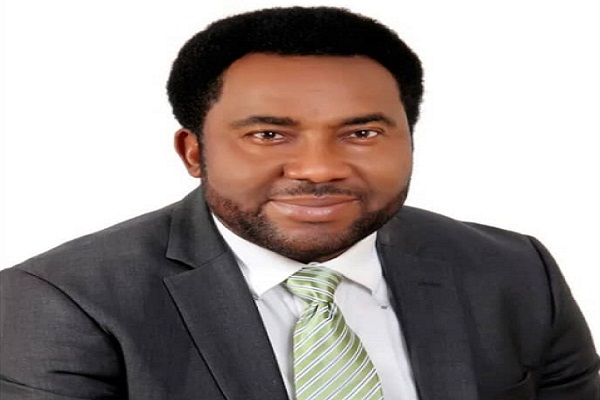
Engr. Nnamdi Ezeigbo, founder and chief executive officer, Slot Systems Limited, a telecommunications, information and technology company with over 70 retail stores nationwide plus an online store. The company sells affordable and durable mobile phones, computer accessories and various types of electronics.
The highly motivated and goal-oriented entrepreneur is the brain behind Tecno and Infinix – some of the fast-selling mobile phone brands in Nigeria. He saw ahead of time the market for dual sim in Nigeria and acted on it by partnering with a Chinese phone company to create dual sim phones for the Nigerian market. The partnership soon gave birth to Tecno brand of phones in the Nigerian market in 2006.
The Infinix brand followed to cater for all segments of the market in Nigeria. The brands met a large and waiting consumer market in the country and have since become the fastest selling brand of handsets in Nigeria.
Ezeigbo has established the Slot Foundation, which is a vocational skills acquisition centre that enables young people become entrepreneurs or skilled enough to work in other companies. As at the last count, the foundation has created jobs for over 300 people.
The foundation, which runs with a slogan “touching lives, raising people”, is primarily positioned to help budding entrepreneurs and promote locally made Nigeria products that would create jobs and enhance local content.
It places vocational training at the centre of its operations with the objective of fostering creativity and employment for the Nigerian youth. Its training activities are carried out through Slot Academy, which provides technical skills that open up job opportunities for students trained. The academy has been rolling out technically qualified graduates since 2016.
The academy is Ezeigbo’s intervention to stem the drift of the youth into entertainment and politics and redirect them into entrepreneurship. “I believe in knowledge-based economy and the only time we can achieve this is when entrepreneurs become socially responsible”, he said.
It became for him a burning desire as an entrepreneur to take steps to impact society and inspire children in the area of acquisition of knowledge and technical skills. He realized that there was need to situate entrepreneurs as models in the minds of growing children for them to see the need to follow after them.
He wondered that “if the youth of today are looking up to musicians, politicians, movie actors and footballers, who is going to create products and services? Who is going to create the next generation of entrepreneurs?” This is why the Slot Academy was launched, according to Ezeigbo.
“We need to reduce the social cost to produce the technicians, engineers and creators of tomorrow’s products and services. The aim is to arrest young Nigerians that will grow and sustain the entrepreneurial environment”, he stated.
For him, the idea of setting up a proper technical school became compelling after assessing the outgrowing need for skills and empowerment in Nigeria. It is therefore quite fulfilling for him to have founded an institution where Nigerians are provided with quality technical skills that enrich their lives.
His aim is to produce skilled professionals who can compete globally and become tomorrow’s employers of labour in Nigeria and across the globe. He has built local and international partnerships to drive the mission of strong human capital development.
These include partnerships with Deutsche Gesellschaft fur International Zusammenarbeit (GIZ) GmbH and Lagos State Technical Vocational and Education Board for free training of the youth in computer and mobile phone repairs.
The training programme includes employment opportunities for outstanding candidates on completion by the original equipment manufacturers in the computer and mobile phone industry. Slot Foundation also partners state governments and other developmental organisations to run entrepreneurship training programmes for the youth on phone and laptop repairs and maintenance. This has provided a valuable channel for various governments’ initiatives in youth empowerment in Nigeria to find a practical expression in Nigeria’s burgeoning technology space.
Ezeigbo holds a Higher National Diploma in electrical electronics engineering from Yaba College of Technology and a bachelor’s degree in computer and electronics engineering from Lagos State University. He also holds a master’s degree in information technology from Ladoke Akintola University of Technology.
He further obtained a Master of Business Administration from Harvard Business School and Lagos Business School, Pan-Atlantic University. He ventured into entrepreneurship that began with repair and sales of computers and printers.
His computer sales and service centre soon blossomed into mobile phones market with commanding brands sold across a chain of retail shops nationwide.
He has written a book entitled ‘Entrepreneurship: The Slot Way’, to teach business sustainability to the aspiring youth.
Sandra Aguebor: Founder, Lady Mechanic Initiative (LMI)
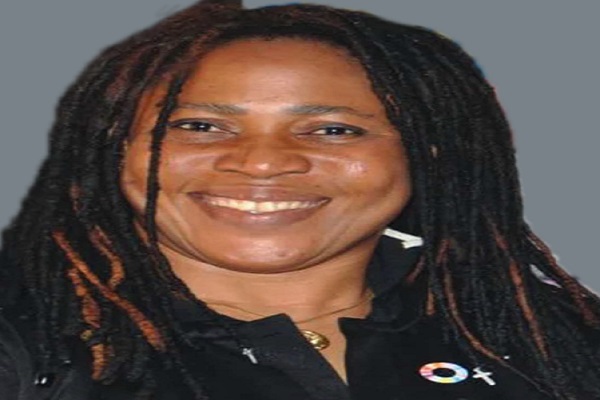
Engr. Sandra Aguebor is the founder of the Lady Mechanic Initiative (LMI), a non-profit organisation she established in 2004. The initiative focuses on empowering girls and women with mechanical skills to help them become professionals in the field of automobile repairs.
Vulnerable girls and women are the special target by the initiative towards equipping them with technical and mechanical skills for better lives. Headquartered in Lagos, LMI are the operators of SANDEX Car Care – an auto repairs garage.
With LMI, Aguebor has come to occupy a very unique space in the world of vocational skills acquisition, employment and job creation in Nigeria and beyond. Known to be the first female auto mechanic in Nigeria, she has multiplied the number in less than 20 years.
She gathers the rejects of society off the streets for skills development – women and girls from disadvantaged backgrounds, those failed by the education system, those trafficked or trapped as sex slaves, struggling single parents, victims of child labour and others stigmatised by cultural, religious and gender biases.
Her skills acquisition programmes are designed to make positive, real and measurable impacts, providing comprehensive hands-on skills training and classroom curriculum in auto mechanic/electrical, professional driving, generating sets repair, speedboat repair and house plumbing.
She also offers additional programmes that provide education and training in productive/employable skills such as customer care, communications and business etiquette, personal development, relationship and financial management.
She runs a number of free training courses from which trainees come out ready to deploy their skills. These include lady automobile technician training programme that offers a professional mechanical (auto technician) training course designed to empower girls and women with skills and competences needed to repair vehicles of any kind. It also incorporates comprehensive training in car electrical designs, repairs and diagnostics.
LMI’s state-of-the-art auto garage/training facility in Lekki, Lagos, provides a work station equipped with modern car repair and diagnostic tools for training on latest vehicle models. Since 2004, LMI has empowered many girls and women, who now run their own garages across the country.
Another training programme is a professional driving course for girls and women. The comprehensive drivers’ training programme equips trainees with adequate skills and competencies for professional driving jobs at any level. Qualified candidates match driving competences required by local and multinational organisations, government agencies and parastatals such as LAMATA, LAGBUS, FAAN’s Airport Shuttles, LAWMA as well as private businesses and individuals.
In addition to the normal training on driving, trainees are equipped with skills and competencies needed to overcome life-threatening situations on the road and the right mental attitude needed for safe driving. They are also schooled on continuing developments in the automotive industry as regards safety and ability to carry out first diagnostic work on faltering vehicles before calling out for external help.
Training of speedboat technicians is designed for women in the coastal areas of Nigeria, where water transportation is the popular means of moving people and goods and rendering other services. The programme provides hands-on training on speedboat body and engine repairs and servicing. Trainees are given an opportunity of internships with major speedboat producers and country representatives in addition to swimming/survival skills training.
Aguebor trains generating sets repair experts under comprehensive petrol-generator repairs training course. The programme includes assembling of component parts as well as installations. On graduation, trainees have the competence to repair the petrol engine of all sizes of generating sets.
LMI also offers speedboat driving course for girls and women in the coastal areas. Trainees learn driving and maintenance of speedboats in addition to diagnostic ability. They also undergo intensive training in swimming and water survival skills backed by an extensive understanding of the waterways. They are equally given entrepreneurship training for them to manage small scale businesses successfully.
LMI’s training and empowerment programmes include a summer school that provides an enlarged opportunity for young girls from diverse economic and social backgrounds to be exposed to the fundamentals of automobile repairs. Participants get the practical exposure of working side by side with Aguebor plus guidance on the opportunities inherent in the automotive industry.
Aguebor’s story reveal her fascination with automobile and engines right in her early teens. Encouraged by her father, she pursued her interest through educational training and earned a degree in mechanical engineering.
After graduation, she worked for Edo Line and subsequently Nigeria Railway Corporation before setting up her own auto repair garage. Good quality jobs delivered attracted lots of customers to her workshop, which paved the way for major repairs contracts for large fleets of trucks with broad distribution networks throughout Nigeria.
She was not deterred by an action of the land authorities in Lagos that demolished her workshop. Instead, she turned her private car into a mobile workshop, patrolling Lagos freeways providing on-the-spot emergency vehicle services. Soon, two workshops sprang up in Lagos in place of the one demolished.
The reality of life is that the people that pull you down when you are struggling are often the same that rejoice with you when you succeed. Aguebor has received the inspirational woman of the year award by the Lagos State government for using her “skills and talent to make positive impact to society in an area dominated by men”.

